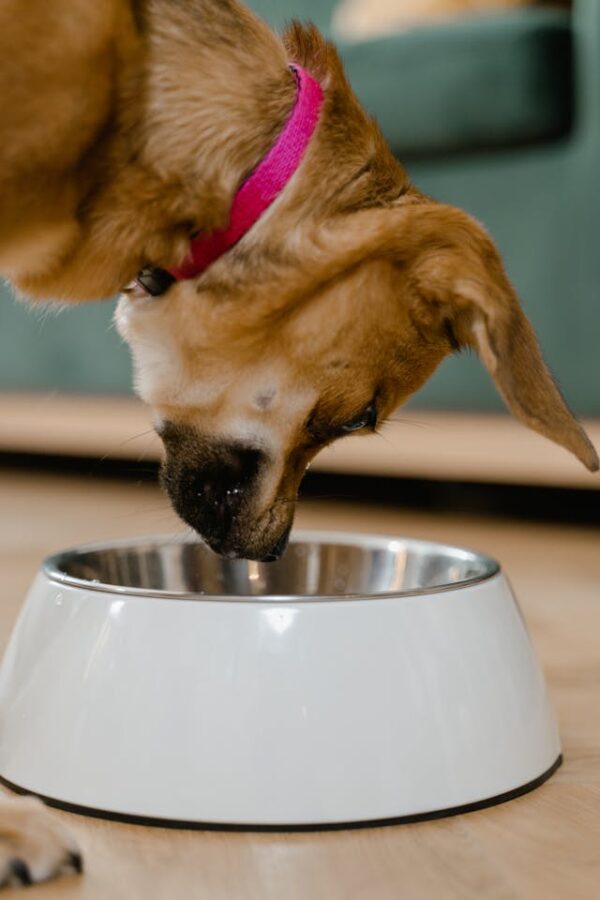Please create a free account, or login by clicking here.
Petland Memphis, Tennessee
June 23, 2025
Puppies are full of curiosity, energy, and a seemingly endless appetite. It’s easy to fall into the trap of thinking that more food equals more love or faster growth — especially when your pup gives you those irresistible puppy-dog eyes. But the truth is, overfeeding can be harmful to your puppy’s health.
Overeating in puppies can lead to a variety of problems including poor digestion, weight-related issues, and even long-term damage to their developing bones and joints. If you’re not sure whether your pup is getting too much food, this guide is for you.

However, puppies have specific nutritional requirements that change quickly as they grow. Feeding more than needed can throw off their internal balance and result in symptoms that may seem minor at first but build up over time.
One of the earliest and most noticeable signs of overfeeding is sudden or excessive weight gain. While puppies do grow quickly, the increase should be steady — not abrupt.
Tip: You should be able to feel your puppy’s ribs without pressing too hard, and they should have a visible waist when viewed from above.
Overfeeding overwhelms your puppy’s digestive system, often resulting in runny or soft stools. If your pup’s poop is regularly loose, this may indicate they’re eating too much or too often.
Instead of being energized, an overfed puppy may feel sluggish or sleepy. This isn’t just the typical post-meal nap — it’s a sign that their body is working too hard to process excess food.
While puppies can have slightly rounded bellies after meals, a persistently swollen belly can be a sign of overfeeding or, in more serious cases, digestive issues or parasites.
If your puppy frequently passes gas or has an unusually smelly belly, it could be due to overfeeding. The body struggles to break down all the food, leading to fermentation and gas in the gut.
Eating too much — or too quickly — can cause a puppy to vomit shortly after meals. This could indicate the portions are too large, or the feeding schedule is off.
Carrying extra weight puts pressure on growing bones and joints. If your puppy seems hesitant to jump, play, or go for walks, overfeeding and early weight gain might be the cause.
A puppy who’s already full won’t find treats exciting. If your dog is disinterested in rewards during training, it could be a sign you’re feeding too much throughout the day.
The good news? It’s never too late to correct course. Here’s what you can do:
Double-check the feeding guidelines on your dog food packaging based on your puppy’s current weight and age. But remember: those are just guidelines — your vet can help you fine-tune based on breed and activity level.
Feed your puppy at regular intervals, and avoid free-feeding (leaving food out all day).
Recommended:
Never guess. Measuring food precisely ensures you’re not accidentally feeding double the recommended amount.
Treats should make up no more than 10% of your puppy’s daily caloric intake. Use bite-sized, low-calorie treats, especially during training.
Healthy movement helps burn excess calories. Go for short walks, play fetch, or let your puppy explore safe environments.
If you’re unsure about what or how much to feed your puppy, or if you’re concerned about their weight or digestion, your vet can provide a tailored plan for your dog’s nutritional needs.
While the symptoms may seem manageable, prolonged overfeeding can lead to serious problems:
Feeding the right amount now ensures your puppy grows into a strong and healthy adult.
Feeding your puppy should feel like a loving routine — not a guessing game. By recognizing the signs of overfeeding and making simple changes, you’ll set the foundation for a lifetime of good health. Puppies grow fast, but that doesn’t mean more food is better. Balance, quality, and routine are key.
 FAQs About Overfeeding Puppies
FAQs About Overfeeding Puppies
1. How can I tell if my puppy is overweight?
You should be able to feel your puppy’s ribs without pressing too hard, and they should have a visible waist. If not, they may be overweight.
2. What happens if I accidentally overfed my puppy?
One or two large meals won’t harm them long-term, but repeated overfeeding can cause digestive upset, weight gain, and long-term health issues. Watch for symptoms and adjust as needed.
3. Can I switch to adult food to reduce calories?
No — puppies need the nutrients in puppy-specific formulas for healthy development. Instead of switching foods, adjust the portion size and consult your vet.
4. Is begging a sign my puppy needs more food?
Not always. Puppies often beg out of habit or boredom. Stick to your feeding schedule and offer toys or attention instead of food.
5. Do all breeds have the same feeding needs?
No. Larger breeds grow slower and need controlled calories to avoid joint issues. Smaller breeds may need more frequent meals. Always factor in breed-specific guidelines.
6. How soon will I see improvement after adjusting food?
You may notice changes in stool consistency, energy levels, and appetite within a few days. Weight and body condition may take weeks to improve. Consistency is key.